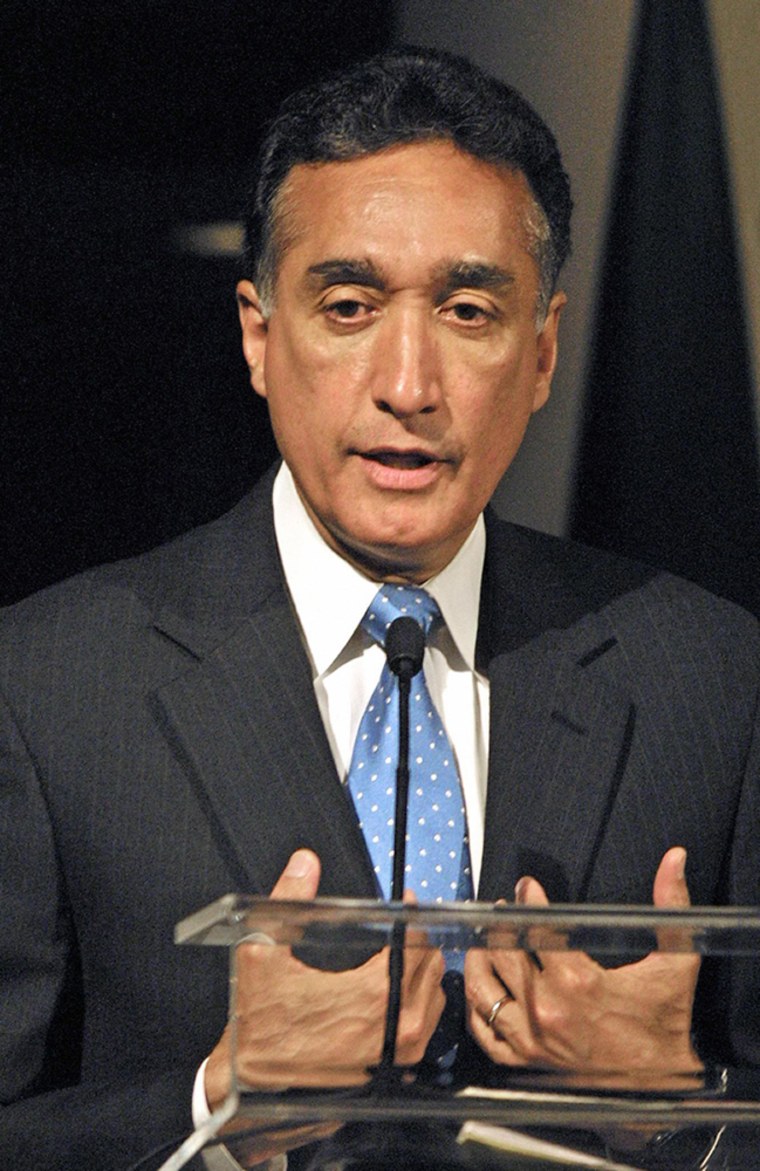The independent counsel who investigated former Housing Secretary Henry Cisneros contended in his final report Thursday that the Justice Department and IRS blocked his efforts to probe possible Cisneros tax violations.
People who worked in the Clinton administration denied the allegations by prosecutor David M. Barrett, whose $20 million, decade-long probe was the longest ever under the post-Watergate reform law. It eclipsed the multiyear investigations by Ken Starr of the Clintons and Lawrence Walsh of the Iran-Contra affair.
Robert S. Litt, one of the Justice Department officials involved, called Barrett’s suggestions of obstruction “a scurrilous falsehood,” adding that the report was “a fitting conclusion to one of the most embarrassingly incompetent and wasteful episodes in the history of American law enforcement.”
Barrett’s report details a behind-the-scenes battle inside the government as the prosecutor sought to assemble evidence that Cisneros may have underreported his income by more than $300,000.
Cisneros, who was housing secretary during the Clinton administration, pleaded guilty in 1999 to a misdemeanor of lying to the FBI about payments to a former mistress when he was answering questions following his nomination for the Cabinet-level post. President Clinton eventually pardoned him.
Investigation narrowed
When Barrett went to the Department of Justice seeking to broaden the probe, Attorney General Janet Reno allowed the prosecutor to look into only a single tax year, he reported.
“Beginning in the summer of 1997, the OIC developed, to the extent it could, evidence concerning efforts by officials of DOJ and the IRS to contain and limit the investigation of Cisneros’ actions,” the report stated.
According to the report, an IRS supervisor in the San Antonio office said the Cisneros matter had been pulled from the field office and moved to Washington with the apparent intent to kill it.
“There seems to be no question that Cisneros was given extra consideration and more limited scrutiny because of who he was — an important political appointee,” said the report.
In strongly worded rebuttals, former officials from the Justice Department and IRS rejected Barrett’s allegations.
“The inaccurate statements and unfair insinuations contained in this final report are too numerous to catalogue,” said Jo Ann Farrington, former deputy chief of the department’s Public Integrity Section.
Accusations about Cisneros’ 1991 and 1992 tax returns were based on his apparent failure to include some of his speaking engagement income. Allegations relating to his 1993 return were based primarily on claimed deductions.
Mistakes ‘almost invited an audit’
According to the former assistant chief counsel for criminal tax matters at the IRS, the certified public accountant who prepared Cisneros’ tax returns had access to records of all the omitted income. In addition, the IRS lawyer wrote in rebuttal, Cisneros’ CPA signed an affidavit taking responsibility for providing faulty advice regarding the improper deductions. Finally, the IRS lawyer wrote, the CPA had previously been an informant against Cisneros and had made amateurish mistakes on Cisneros’ tax returns “that almost invited an audit.”
Barrett’s report is the last chapter in the controversial history of the independent counsel law, which Congress refused to renew. The investigations caused serious political damage to both Republican and Democratic administrations.
Cisneros was indicted on 18 felony counts before the case was resolved with the misdemeanor plea.
“The materials that are now being publicly released are simply an effort to ‘try’ the case that the OIC could not win in court in an adversarial process,” wrote Cisneros attorney Barry Simon. “The only good thing about the current OIC report is that it is the final chapter written under an ill-conceived and dangerous statute.”
